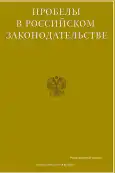Social and Politically Motivated Forms of Manifestation of Cybercrime
- Authors: Takov A.Z.1
-
Affiliations:
- North Caucasus Institute for Advanced Studies (branch) of the Krasnodar University of the Ministry of Internal Affairs of Russia
- Issue: Vol 15, No 5 (2022)
- Pages: 190-194
- Section: Articles
- URL: https://bakhtiniada.ru/2072-3164/article/view/147617
- ID: 147617
Cite item
Abstract
The purpose of this study was to study the features of social and politically motivated manifestations of cybercrimes. The main manifestation of the social and political orientation of cybercrime is the dissemination of false information or news in order to discredit the names of political figures. Given that modern youth spends a lot of time on social networks, the spread of such news is very fast, someone saw it, sent it to friends and parents, and so on in a circle. As a result, in a matter of hours, thousands of people have already received this news, therefore, their opinion about politicians is changing dramatically. The main problem of today's youth is gullibility and inability to analyze and adequately assess the processes taking place in the world, which makes them vulnerable. To prevent this, the efforts of law enforcement agencies are not enough. It is necessary to consolidate all the institutions of civil society, whose efforts will be directed to counteract destructive movements, and also to propose a positive ideology in return. Another “fashionable” trend of recent years is the penetration into the accounts of well-known users (opinion leaders) of social media and the theft of personal information, up to intimate photos, firstly, for the purpose of blackmail, and, secondly, for posting on social networks and compromising their reputation. That is why the young people have the proverb “The Internet remembers everything”, which is gaining relevance today due to its unambiguousness. After all, information that has ever entered the network remains in it, even if it is deleted from the original source, since it is repeatedly reposted and stored on the pages and chats of those who received it. All this, of course, plays into the hands of various criminal communities and groups that have been spreading false news and information on behalf of celebrities for many years, which young users take for granted.
Full Text
##article.viewOnOriginalSite##About the authors
Aslanbek Zaurbievich Takov
North Caucasus Institute for Advanced Studies (branch) of the Krasnodar University of the Ministry of Internal Affairs of Russia
Email: gedmur7@gmail.com
senior lieutenant of police, lecturer at the Department of Fire Training Nalchik, Russia
References
- Akkaeva H.A. International cyberterrorism as a political phenomenon // Socio-political sciences. 2018. No. 1. pp. 138-140.
- Aloeva A.A., Aloev I.A., Zhukov A.Z. Information terrorism - a threat to national security in the context of digitalization // Gaps in Russian legislation. 2020. V. 13. No. 6. pp. 197-201.
- Gevorgyan E.M. Cyberterrorism as a threat to the information security of the Russian Federation // Skif. Issues of student science. 2021. No. 6 (58). pp. 118-122.
- Dudnik D.A. Cyberterrorism: concept, signs, methods of committing // Student Bulletin. 2020. No. 16-2 (114). pp. 92-94.
- Zakolpina A. A. Cyberterrorism as a threat to the security of the Russian Federation // Legal regulation of modern society: theory, methodology, practice: Proceedings of the II International Scientific and Practical Conference. Voronezh, 2017. pp. 40-46.
- Kozyachaya A.V. The political aspect of cybercrime // In the collection: In the world of scientific discoveries. Materials of the IV International Student Scientific Conference. Ulyanovsk, 2020. pp. 39-42.
- Krupennikova K.K. Forms of manifestation of cybercrime in the modern world // In the collection: The evolution of state and law: problems and prospects. Collection of scientific papers of the 3rd International Scientific Conference with the inclusion of materials from the XIth round table "Values and norms of legal culture in Russia". Kursk, 2021. pp. 221-225.
- Motorina T.S., Shamsudinova V.V. Cyberterrorism as a threat to the information security of the Russian Federation // Scientific research of the XXI century. 2020. No. 3 (5). pp. 168-172.
- Skorilkina N.A., Safonov V.A. Cyberterrorism as a new form of global threat // In the collection: Problems of development of the Russian legal system: history and modernity. Materials of the interuniversity scientific-practical conference. Tula Institute (branch) of the All-Russian State University of Justice (RPA of the Ministry of Justice of Russia); Managing editor I. A. Kuznetsova. 2018, pp. 141-148.
- Tsrimov A.A., Kuchmezov A.N. The origin of terrorism and the forms of its manifestation to the present day // Gaps in Russian legislation. 2021. V. 14. No. 4. pp. 27-30.
Supplementary files








